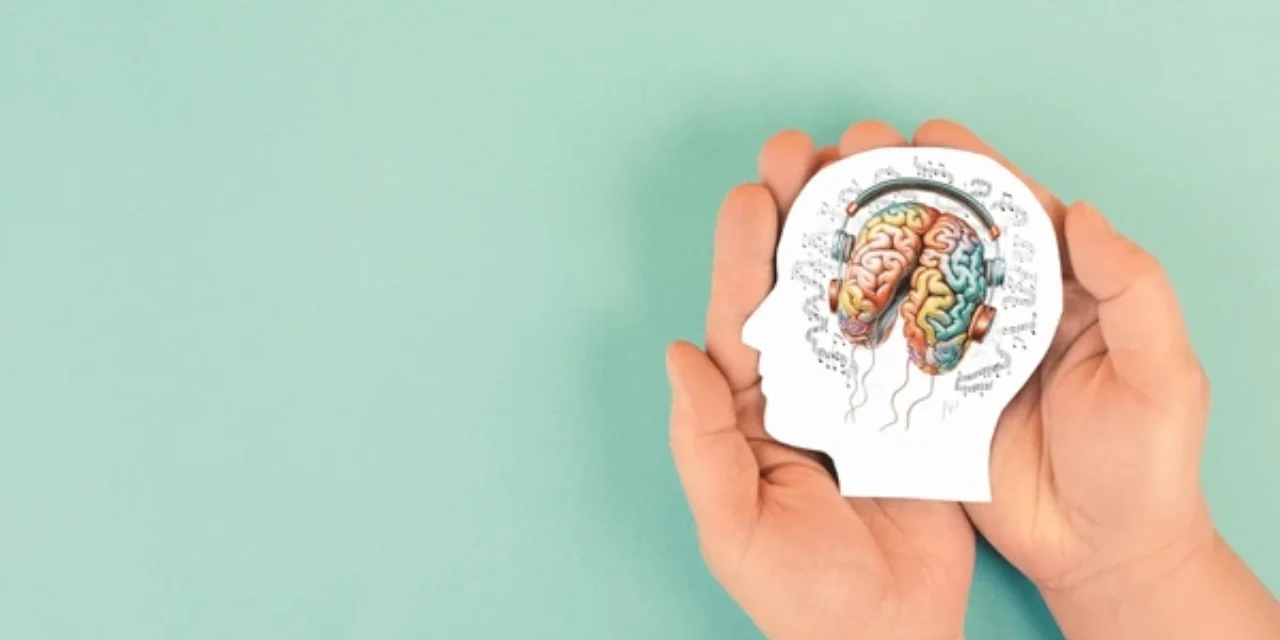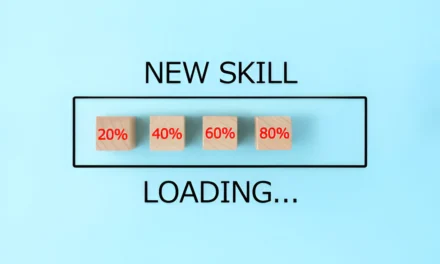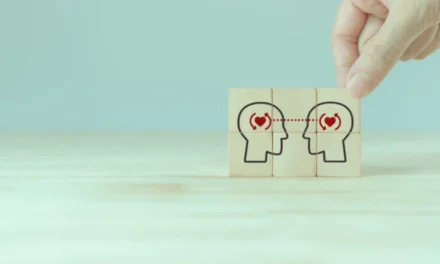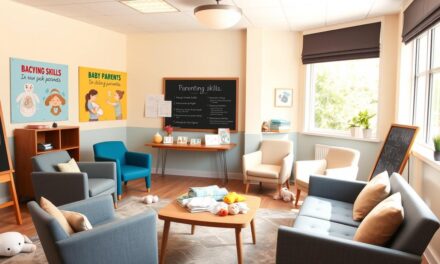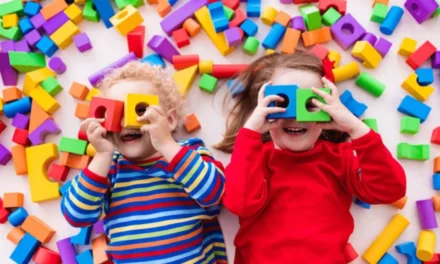Studies show that music makes the brain’s connection between hemispheres stronger1. Kids who start music lessons early have brains that can change and adapt better1. This shows how music can greatly improve a child’s brain and overall health.
Music deeply affects emotions and thinking in children. Those who listen to music a lot have strong brain connections related to music1. It helps with early language skills, learning new languages, and managing1. It also boosts physical strength, patience, and discipline.
Playing music also improves hand-eye coordination and the connection between the brain and body in kids1.
Key Takeaways
- Music strengthens the corpus callosum, the brain’s “bridge” between the two hemispheres.
- Early music training (before age 7) enhances neuroplasticity, the brain’s ability to adapt and change.
- Music positively impacts language development, emotional regulation, and physical endurance in children.
- Playing instruments requires fine motor skills, hand-eye coordination, and a strong brain-body connection.
- Music education benefits children’s cognitive, social, and emotional development.
Understanding the Neural Foundations of Musical Learning
Music deeply affects the growing brain, creating complex neural paths and boosting sound processing2. Kids who play music see big gains in memory, language, reading, and thinking skills2. The more they practice, the more their brains adapt and improve2.
Formation of Neural Pathways Through Music
Playing music needs perfect timing and organization2. It activates many brain areas, including those for thinking and planning2. Music sight-reading, in particular, requires quick processing of lots of information, improving focus and planning2.
Role of the Corpus Callosum in Musical Processing
The corpus callosum connects the brain’s hemispheres, crucial for music processing2. Studies link longer music training to changes in the corpus callosum, showing better brain connections2.
Brain Plasticity and Musical Training
Musical training boosts skills and cognitive growth2. Musicians’ brains show more flexibility and differences in key areas compared to non-musicians2. Starting music lessons early makes a child’s brain more adaptable for life2.
Music’s impact on brain development is huge, especially in early childhood3. It improves hearing, language, and emotional skills3. Music also enhances memory, attention, and thinking by using sight, touch, hearing, and movement3.
The Mozart Effect: Separating Fact from Fiction
The “Mozart effect” suggests that listening to classical music, especially Mozart’s, can boost spatial reasoning skills. This effect is short-lived, lasting about an hour. Studies have shown that Mozart’s sonata for two pianos (K448) can improve spatial IQ scores by 8-9 points after just 10 minutes. This is more than listening to relaxation instructions or silence4.
Classical music is thought to prepare the brain for solving spatial problems. Researchers found that rats listening to Mozart’s piano sonata K448 did better in mazes than those listening to minimalist music, white noise, or silence4. But, the real benefit of music might be more about mood and arousal than the music itself.
Music lessons in pre-school children show more lasting benefits. Children aged 3-4 who learned keyboard music for six months did better in spatial-temporal reasoning tests by over 30%4. Long-term music exposure in children also improved their spatial-temporal reasoning by more than 30% compared to computer lessons or no special training4.
The “Mozart effect” is real, but it’s not a free benefit. It requires consistent musical training and exposure. Music lessons have more lasting benefits on cognitive abilities, especially in spatial-temporal skills, than just listening to music.
| Findings | Source |
|---|---|
| 80% of American adults believe that music can improve a child’s grades or intelligence. | 5 |
| 1993 study on the “Mozart Effect” claimed that after listening to music, subjects performed better on spatial tasks. | 5 |
| No significant improvement in cognition was observed in children who received music training compared to those who received visual arts training. | 5 |
| The music group performed slightly better at one spatial task, but overall, there was not a substantial difference in cognition, vocabulary, or mathematics between the music training and visual arts training groups. | 5 |
In summary, the “Mozart effect” is complex and needs more research. While classical music may offer temporary cognitive benefits, music lessons have more lasting effects on child development6.
Early Childhood Music Exposure and Cognitive Growth

Music in early childhood can greatly boost brain development. It helps with language skills because music and language share brain areas7. Singing to babies can make them feel calm and bond better with parents. It also improves their health and language skills7.
Music makes babies’ brains better at hearing and understanding sounds. This is key for learning later on7.
Impact on Language Development
Music introduces new words and sounds to kids. Its rhythm and repetition help with memory7. This can improve how kids understand language.
Playing instruments or singing songs also helps kids’ hands. This can make their fine motor skills better, which helps with language too7.
Enhancement of Memory Functions
Music’s rhythm and melody help kids remember things better7. Hearing different kinds of music makes brain connections stronger. This boosts memory, attention, and problem-solving skills8.
Music also makes kids happy by releasing dopamine, a feel-good chemical8.
Spatial-Temporal Skills Development
Music helps kids with spatial and temporal skills. Dancing to different rhythms builds muscle and improves coordination7. It also helps kids understand their body better.
Music is great for kids’ development. It introduces them to new cultures and makes them feel safe and connected7.
In summary, music is very important for young kids. It helps with language, memory, and spatial skills. Parents and teachers can use music to create a supportive learning environment for kids.
Music and Brain Development: Core Connections
Music education is a powerful tool for enhancing brain development in children. It activates many parts of the brain. This leads to strong neural connections and boosts cognitive functions like planning and memory9.
Music training in childhood changes the brain in big ways. It improves language, memory, and spatial skills9. Starting music lessons early boosts brain flexibility9.
Playing an instrument strengthens the brain’s connection between hemispheres9. This boosts problem-solving and academic performance. Studies show a strong link between music and brain development10.
| Cognitive Benefit | Evidence |
|---|---|
| Improved verbal memory | 10 |
| Better second language pronunciation accuracy | 10 |
| Enhanced reading ability | 10 |
| Stronger executive functions | 10 |
| Higher academic performance and IQ | 10 |
The impact of music on brain development is huge. It engages senses and boosts brain connections. This opens up a world of benefits for kids’ minds and schoolwork910.
“Music has a profound impact on brain development, unlocking a wide range of cognitive and academic benefits for children.”
Benefits of Musical Training in Preschool Years

Music in preschool can open up a world of benefits. It boosts motor skills, social growth, and emotional intelligence. Music’s impact in early years is clear.
Motor Skill Enhancement
Playing instruments helps young children with fine motor skills and hand-eye coordination11. Research shows music lessons make preschoolers better at motor skills than those without music11.
Social Development Through Music
Music in preschool promotes teamwork and social skills. Kids learn to listen, take turns, and create music together. This builds their social skills and sense of community12.
Emotional Intelligence Growth
Music deeply affects preschoolers’ emotions. It helps them manage feelings, develop empathy, and express themselves. Music makes them happier and more emotionally stable12.
Music in preschool offers many benefits. It improves motor skills, social skills, and emotional intelligence. It sets a strong foundation for a lifelong love of the arts.
“Music is a powerful tool for unlocking the full potential of young minds. It’s not just about playing notes, but about cultivating the whole child.”
The research on music’s positive effects on children is strong. Preschools that focus on music education give their students a great start.
Classical Music’s Unique Impact on Brain Function
Classical music has a special effect on the brain, helping it grow and work better. The complex sounds in classical music challenge the brain, making it better at solving problems and thinking deeply. Studies have shown13 that it boosts the brain’s thinking and planning areas. It also helps the brain’s left and right sides work together, improving how we communicate13.
Listening to classical music is like a special treat for the brain, releasing happy chemicals and making us feel calm. It can even lower our heart rate and blood pressure13. Plus, it helps kids with memory, self-control, and feeling for others, showing its deep impact on growing minds14.
But it’s not just classical music that’s good for the brain. Any kind of music15 can make our brains sharper and more focused. Music, in all its forms, shows how amazing our brains are and how they can keep growing and changing15.
| Benefits of Classical Music on the Brain | Neurological Impacts |
|---|---|
| Enhances frontal lobe functions | Improves thinking, decision-making, and planning |
| Activates left and right brain hemispheres | Enhances communication abilities |
| Triggers dopamine release and amygdala activation | Contributes to calming and stress-reducing effects |
| Improves memory, impulse control, and empathy in children | Enhances cognitive and emotional development |
| Sharpens the brain’s ability to anticipate events and sustain attention | Improves navigation of complex auditory environments |
“Music has the power to prime the brain for higher cognitive functioning, emotional well-being, and overall neurological development.”
Classical music’s special effect on the brain shows how amazing our minds are. It engages many parts of the brain, improving our thinking, feelings, and overall health131415.
How Musical Training Enhances Problem-Solving Abilities
Learning music can make you better at solving problems, thinking mathematically, and making smart choices. It teaches you to spot patterns and make quick decisions. These skills are useful in many areas of life16.
People who play music do better on tasks that need executive function. This includes working memory, being flexible, and controlling impulses16.
Mathematical Thinking and Music
Music training also boosts math skills. Kids who learn to read music and play instruments do better in math. They improve in working memory, attention, and processing speed17.
They also get better at being flexible and using their hands. This shows how music can help with math and other skills.
Critical Reasoning Development
Musical training also helps with critical thinking. For example, learning to harmonize can improve problem-solving skills16. Kids who learn music do better in verbal intelligence and solving problems compared to those who don’t17.
The benefits of music training last a lifetime. It helps adults solve problems too16. Quality music education for kids prepares them for success in many areas of life.
The Role of Music in Language Acquisition
Music is key in helping kids learn new languages. It boosts phonological awareness, which is the skill to recognize and play with speech sounds. Singing songs helps grow vocabulary and improve sentence structure18. It also sharpens the brain’s ability to catch subtle changes in speech, vital for learning languages18.
Children who listen to music do better in verbal memory and learning new languages19.
The bond between music and language is strong18. Both are built from smaller units that come together following specific rules18. They use melody and rhythm, similar to how music does, to create meaning18. Kids learn to spot patterns in sounds, helping them grasp both music and language18.
- 19 Kids who grow up with music develop strong language skills.
- 19 Being bilingual boosts problem-solving, memory, and creativity in kids.
- 19 Bilingual babies pick up diverse sounds, improving their communication and listening.
18 Learning structure in our environment is helped by statistical learning18. Protolanguage, without syntax, shows a common start for both music and language18. Infant-directed speech aids in vocal growth and shapes parent-child interaction18. Music and language share brain processes, like change detection, linked to auditory prediction.
18 Brain damage shows music and language share processing areas18. The left brain handles speech over singing, while the right brain does the opposite18. Music and language have unique structures and functions, making them distinct systems.
18 Music’s meaning is less specific than language’s18. Language’s meaning is built from parts, unlike music’s18. Genetics, intelligence, personality, and social status affect learning music and language.
18 Music and language are deeply connected and grow together in early life.
19 People good at music also learn foreign languages better, thanks to their sound perception19. Music engages both brain sides, making learning easier19. Early music lessons can spark a lifelong love for music and boost language skills19. Music makes learning fun for young kids, using rhythms and melodies19. Singing with children helps them learn and remember words better, aiding in language growth.
20 By three or four, kids are mostly fluent in their native language20. Music’s role in development is seen as secondary and takes longer than language20. Yet, music learning speed and effort are similar to language, challenging the idea music is learned slower.
“Music education in schools can help build skills such as coordination and creativity in children, contributing to their overall development.”19
Emotional and Social Benefits of Musical Education
Music education brings many benefits to children. It helps them feel more confident as they learn new things and share their talents. Studies have shown that music students often have better vocabularies and reading skills21. They also do well on tests of thinking and problem-solving21.
Playing in groups, like bands or choirs, teaches teamwork. Kids learn to work together, talk well, and aim for a shared goal21. Music also helps kids manage their feelings, which is key for emotional growth22. Being part of music groups makes kids feel they belong and are connected, which is good for their happiness22.
Building Self-Confidence Through Music
Music helps kids feel more confident. As they learn and perform, they feel proud and accomplished21. This boost in confidence can help them in many areas of life.
Developing Teamwork Skills
Being in a band or choir teaches kids about teamwork21. They learn to work together, share ideas, and support each other. This teamwork skill is valuable for life23.
| Key Emotional and Social Benefits of Musical Education |
|---|
|
Musical education has deep emotional and social benefits for kids. It helps them feel confident, develop teamwork skills, and grow emotionally. These skills are crucial for their future success and happiness212223.
“Music education enhances eye-hand coordination and fine motor skills in children. It also contributes to improved memory and brain development in young children.”
Impact of Instrumental Training on Cognitive Development
Learning to play a musical instrument greatly benefits children’s minds. It boosts skills like attention, memory, and flexibility24. Kids who play music grow their brains faster than those who don’t.
Playing music regularly makes the brain stronger, especially in kids and young adults25. Musicians have bigger brains in areas for movement, hearing, and seeing25. Just 15 months of music lessons can improve motor and hearing skills25.
Music lessons help in many areas of learning and last a lifetime24. Kids who play music do better in reading and speaking25.
A study with 34 women aged 20.7 ± 1.4 found big brain changes in those who played music for 10 years or more26.
Instrumental training deeply affects children’s minds. It boosts brain power and changes brain structure. These benefits last a lifetime, helping kids grow smarter and do better in school.
Music’s Influence on Memory and Learning Capacity
Music deeply affects our memory and learning. It helps us remember and create new memories27. Research shows music boosts short-term memory by organizing information27.
People with dementia often remember music even when other memories fade27. This shows music’s strong link to memory. Music therapy helps those with dementia recall memories.
Music does more than just help with short-term memory27. Baroque music, like Bach or Handel, improves focus and speed27. Nature sounds and certain types of music help keep us focused and calm27.
Music’s Impact on Learning Capacity
28 Music activates almost the whole brain, including areas for emotions and memory28. Listening to Mozart’s Sonata can even reduce seizures in some28. Music may help with conditions like Parkinson’s and Alzheimer’s too.
28 The brain’s OCD areas are active when we listen to music, especially Western music28. Music’s patterns show how our brain handles complex tasks.
Understanding music’s effects on memory and learning opens new ways to improve cognitive development in kids. Adding music to school can unlock young minds’ full potential.
Different Types of Musical Training and Their Benefits
The world of musical training is vast and offers many benefits for kids. Each type, from playing instruments to singing and drumming, helps kids grow in different ways.
Playing instruments like the piano or violin improves hand skills and spatial thinking29. Adults who play instruments have more brain cells in areas for sensing and moving, showing music’s deep impact29. Singing lessons, meanwhile, boost language skills and emotional expression by teaching about pitch, rhythm, and lyrics.
Drumming lessons help kids with their coordination and timing30. A University of Toronto study found that music, like singing and dancing, makes kids more social and willing to help others30. Being part of a band or choir also teaches important social and teamwork skills.
FAQ
How does music affect brain development in children?
What are the neural foundations of musical learning?
What is the “Mozart effect” and how does it impact brain function?
How does early childhood music exposure contribute to cognitive growth?
What are the core connections between music and brain development?
What are the benefits of musical training in the preschool years?
How does classical music uniquely impact brain function?
How does musical training enhance problem-solving abilities?
What is the role of music in language acquisition?
What are the emotional and social benefits of musical education?
How does instrumental training impact cognitive development?
How does music influence memory and learning capacity?
What are the different types of musical training and their benefits?
Source Links
- School of Rock | Kids & Music: Effects of Music on Child Development
- How musical training affects cognitive development: rhythm, reward and other modulating variables
- Music and Learning: Does Music Make You Smarter?
- The Mozart effect – PMC
- The Mozart Effect myth: research finds music doesn’t make you smarter
- The Mozart effect: it’s time to face the music!
- The Importance of Music in Early Childhood | UMD College of Education
- The Impact of Music on Cognitive Development in Children…
- The Powerful Impact Music Has on a Child’s Brain Development
- Brain-Based Research on the Positive Impact of Music on Individuals
- Music Interventions and Child Development: A Critical Review and Further Directions
- The Role of Music in Brain Development
- Your Brain on Music
- USC research reinforces music’s impact on the developing brain
- Music moves brain to pay attention, Stanford study finds
- Frontiers | Music Training, and the Ability of Musicians to Harmonize, Are Associated With Enhanced Planning and Problem-Solving
- Music and intelligence: Do music lessions improve cognitive skills?
- The Association between Music and Language in Children: A State-of-the-Art Review
- Music development in Early Childhood | Bilingual education
- Music and Early Language Acquisition
- Benefits of Music Education: Social & Cognitive Development
- The Impact of Music Education on Brain Development
- How music lessons can shape children’s social and emotional growth
- Children’s brains develop faster with music training
- Instruments of Knowledge: Music and the Brain
- Brain Plasticity Reflects Specialized Cognitive Development Induced by Musical Training
- How Music Affects Memory and Concentration – Levine Music
- How Music Resonates in the Brain
- Frontiers | Art and science: how musical training shapes the brain
- How Music Primes the Brain for Learning

